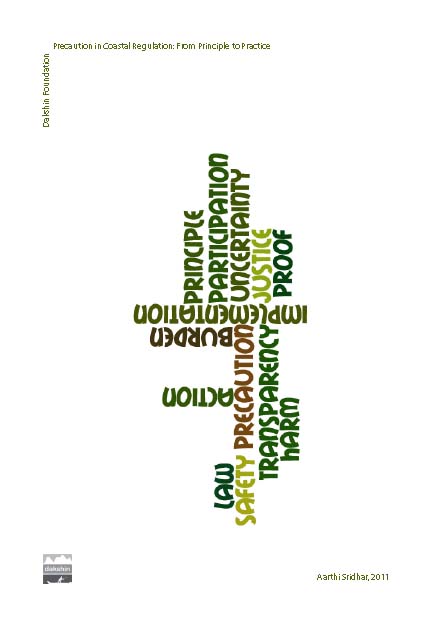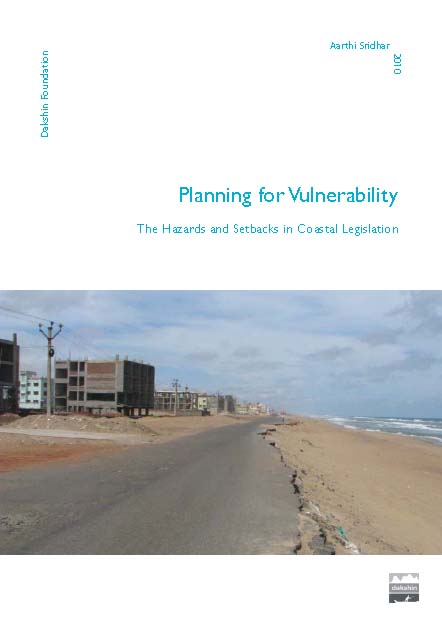Aarthi Sridhar
Precaution in coastal regulation - From principle to practice – A report by Dakshin Foundation
Posted on 21 Jun, 2011 11:45 AM The decision to act or not act, and further how to act in the face of unknowns or uncertainties is the subject matter of the precautionary principle (PP). It is against this historical backdrop of unknowns in environmental governance that the present study on the precautionary principle was conducted.
The decision to act or not act, and further how to act in the face of unknowns or uncertainties is the subject matter of the precautionary principle (PP). It is against this historical backdrop of unknowns in environmental governance that the present study on the precautionary principle was conducted.
The present framework for environmental governance provides a number of areas where precaution can and must be applied. In addition to these areas, the present report is the outcome of a descriptive study that shows the extent to which key elements of the precautionary principle are embedded in the specific case of two environmental laws related to coasts. The study examines key areas of the clearance continuum (law-making, clearance and monitoring) through a single broad question: To what extent is the approach of precaution embedded in decision-making under the CRZ Notification 1991 and the Water Act, 1974?
Sridhar attempted to examine this question on a continuum that examines a) the text of the law, b) the conditions under which projects are cleared or rejected and c) issues related to the monitoring of these conditions. The Asia and Pacific Workshop Report of the Precautionary Principle Project declared that there are both explicit and implicit uses of the precautionary principle. It states that there are some instances where the PP’s application is explicit and unambiguous whereas in other decisions the PP is implicit. They also raise an important point that to actually determine whether a decision was indeed precautionary or not (where it is not explicit) requires an examination of the context and motivations for decisions and management interventions.
Planning for vulnerability - The hazards and setbacks in coastal legislation – A report by Dakshin Foundation
Posted on 22 May, 2011 06:16 PM The law pertaining to coastal spaces – the Coastal Regulation Zone (CRZ) Notification, 1991 specifically decides what people can and cannot do on the coastal stretches of the country.
The law pertaining to coastal spaces – the Coastal Regulation Zone (CRZ) Notification, 1991 specifically decides what people can and cannot do on the coastal stretches of the country.
Harbouring trouble - The social and environmental upshot of port growth in India – A report by Dakshin Foundation
Posted on 22 May, 2011 12:04 PMBesides its own impact, port development is often accompanied by other activities such as the location of industries, power plants, railway lines, highways, hotels, SEZs, residential complexes, etc., that have multiple detrimental impacts – environmental, social and erosion related.